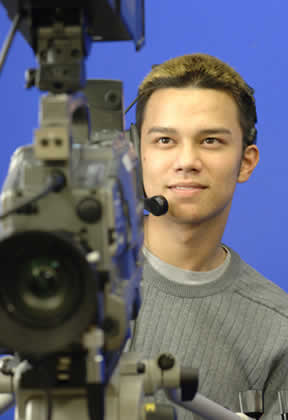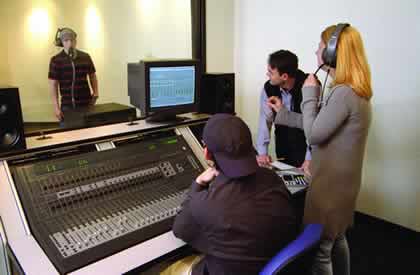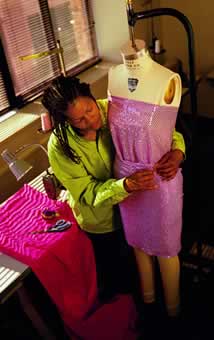 Film and Television writer/producer/director and development executive David Schreiber directed his first short movie at age 13 and has been in love with the art form since that early age. As a development executive in Hollywood, he helped shepherd into production some of the most commercially and artistically successful movies of the 1980’s, from The Elephant Man and The Fly to My Favorite Year and more.
Film and Television writer/producer/director and development executive David Schreiber directed his first short movie at age 13 and has been in love with the art form since that early age. As a development executive in Hollywood, he helped shepherd into production some of the most commercially and artistically successful movies of the 1980’s, from The Elephant Man and The Fly to My Favorite Year and more.
In the world of multi-camera production, Mr. Schreiber wrote for the Emmy-winning children’s shows Double-Dare and What Would You Do? As well as many game and reality shows. Having worked as a film reviewer for the prestigious Soho News and as a successful screenwriter in Hollywood, he is one of those few writers who moved effortlessly between the sometimes antagonistic worlds of film criticism and creation. His current interest lies in the global movement of production, the democratizing effect of the Internet, and new technologies utilized in the production process. David Schreiber is Director of Digital Filmmaking & Video Production at The Art Institute of California-Los Angeles
Bijan Tehrani: Please give us an overview of the Digital Filmmaking & Video Production program at The Art Institute of California-Los Angeles.
David_Schreiber: Essentially it is digital filmmaking and video production. Much like any film school, we teach filmmaking, and the major departments that go into that, but we shoot everything digitally. We also shoot single camera production, which is movie making, as well as multi-camera television production.
BT: How much of the program is hands-on in comparison to other film schools, many of which also include courses such as history of the cinema? 
DS: I can’t speak with any authority to all of the film schools that are out there. Ours is very hands on. From the very first quarter that students are enrolled they are shooting short projects. The philosophy and the pedagogy here is that you learn by doing, which is true of all the programs at our school, I believe.
BT: How many years is the program? Do students receive a degree given upon completion?
DS: Sure. There are two options for students. They can either get the Associates of Science (AS), which is a seven quarter program. Because we are year round, that would be one and three-quarters years. Or they could pursue the Bachelors of Science, which is twelve quarters. In theory they could complete that in three years.
BT: What are some of the different courses that are taught?
DS: We teach the major departments. We have a track that runs through the program that is editing, which is one of the more attractive to students, although all students take the same courses. It is a survey approach. Certain students go on to specialties or certain crew positions, like editing, or if they want to write or direct, or do art direction. They learn pre-production, which would include screen writing, story boarding, production management, script writing, casting, etc. Then they move into production, where they will actually learn the proper way to running a set. They learn the Hollywood way of running the set, so they learn  how to speak to actors and crew members. We try to keep it as formalized as possible so that there is no gulf between what we teach here and the processes that they will be exposed to when they work in Hollywood or elsewhere in the Independent world. Then they learn post production, which is editing both picture and sound, creating DVDs, and the various distribution systems that we now have in the digital age.
how to speak to actors and crew members. We try to keep it as formalized as possible so that there is no gulf between what we teach here and the processes that they will be exposed to when they work in Hollywood or elsewhere in the Independent world. Then they learn post production, which is editing both picture and sound, creating DVDs, and the various distribution systems that we now have in the digital age.
BT: Are they trained in specialties, like director of cinematography, sound engineer, or director?
DS: We don’t have majors yet because it is an undergraduate program. We certainly have students who want to do that, and as they get into the upper echelons of the program there are students who want to be a shooter or a DP. What they then do is enter certain classes like thesis production, where they might be the DP for a project written and director by another student. So there are specialties within classes. After quarter seven, which demarcates the associates from the bachelors, students have a better idea, having been exposed to the major departments of production, what they want to do. But remember, they are very young. Filmmaking and video production are not academic programs that one often gets in high schools. So it is all very new to them, in the sense that they don’t really know how a movie is made. They may love movies, perhaps they have been watching them since they were three or four, but they don’t know the nuts and bolts of how movies and TV shows are made. So it is important for them to be exposed to all the major departments so they can coalesce their own passions with specific roles in the industry, but they often don’t know that coming in.
BT: Filmmaking is dependant on teamwork. How much teamwork are students involved with while completing their bachelor’s degree?
DS: It is all teamwork in my mind. It’s what we call a soft skill that we teach in virtually every course. Out of all the media programs here at The Art Institute, ours is probably the most collaborative and cooperative. From the first time they come to an open house and are introduced to the program, we preach that they need to make allies not enemies, they need to get along with people, that there is no such thing as being a rogue elephant and a successful filmmaker, and that they need to learn to play and get along with one another.
BT: Do you have any international students that come to your filmmaking classes?
DS: Yes, because we are in a very multi-cultural city. There is no dominant ethnic group here. We have students from as far away as Japan, Singapore, Indonesia, Thailand — to cover just a sampling of Asian countries — plus Europe. We have students from Australia, from all over America, and we also have Canadian students and others from Latin America. That is true of all the programs here. It is a very good question because it leads to another philosophical underpinning of this program, and that is that we try to cajole and encourage students to tell personal stories, to tell about themselves, not to just replicate the genres that are popular in Hollywood, and to engage in personal filmmaking in the way that Independent filmmakers are alleged to do. We want them to bring that rich cultural background to their moviemaking so that is not the dominant narrative that Hollywood disseminates.
to tell personal stories, to tell about themselves, not to just replicate the genres that are popular in Hollywood, and to engage in personal filmmaking in the way that Independent filmmakers are alleged to do. We want them to bring that rich cultural background to their moviemaking so that is not the dominant narrative that Hollywood disseminates.
BT: Are there any screenings of classic films, or foreign films, that the students take part in?
DS: Sure, though it depends on the instructor. I, as chair of the department, believe in academic freedom, and so when faculty come to me because they are teaching a film history or masters in genres or movements class, they often ask to pick my brains and please me, and ask me what films they should teach. I always say, ‘don’t teach what I would teach. Teach the movies that you think are great, the movies that you think will influence them the way they influenced you.’ We do have film history classes, and when I teach those classes I certainly touch on the classics, but my sensibility is quite different from the sensibility of other members of the faculty. There is very little of Hollywood in what I would show, at least current Hollywood, but other instructors are very much part of that sensibility. I am interested in filmmakers from all over the world, because the students are from those countries. But this also predates my job as director of the program. I have always been interested in cinema, pure and simple. Any movie that uncompromisingly expresses the unique personal vision of the filmmaker is one that I am probably going to respond to; even it takes three or four screenings for me to really understand what the filmmaker is doing. That is what turns me on, that is what excites me about cinema, and that’s what I personally preach in my classes. I never censor a student, if a student is in love with Hollywood movie  making, I will do everything in my power to help my student. But it is very important for them to know that Hollywood is a very small place, we don’t need Hollywood’s stamp of approval to call ourselves filmmakers, and that some of the most vital films being made in the world are not coming out of Hollywood, but are coming from elsewhere, from India, Iran, Japan, China, Taiwan, from all over the globe. I really do take that as an imperative I have to operate under, to expose them to the great possibilities of cinema. That stamp is there in the program; all of the teachers believe that we should expand the sense of narrative that students have to be aware of, especially the American students who come here. But the students are always free to do a pastiche on a genre they like, or to do their version of car chases – hopefully no one gets killed doing a car chase and crash – but we do believe in academic freedom.
making, I will do everything in my power to help my student. But it is very important for them to know that Hollywood is a very small place, we don’t need Hollywood’s stamp of approval to call ourselves filmmakers, and that some of the most vital films being made in the world are not coming out of Hollywood, but are coming from elsewhere, from India, Iran, Japan, China, Taiwan, from all over the globe. I really do take that as an imperative I have to operate under, to expose them to the great possibilities of cinema. That stamp is there in the program; all of the teachers believe that we should expand the sense of narrative that students have to be aware of, especially the American students who come here. But the students are always free to do a pastiche on a genre they like, or to do their version of car chases – hopefully no one gets killed doing a car chase and crash – but we do believe in academic freedom.
BT: I believe you have a film festival every year?
DS: Yes, absolutely. The film festival will be held on September 9th, I am glad you brought that up because you were instrumental in securing the rights to screen at the Crest Theater in Westwood. It is going to be our annual summer shorts festival. The theater itself is a historic landmark. It is a beautiful theater with some art deco motifs and some other eclectic art designs throughout the theater. I thank you for that. The students are probably going to have the best bash they have ever had in the form of a film festival event. It has been in the past an annual event, but there was a period when it fell away. Now it is back, bigger and better than ever, and we hope to continue it on an annual basis.

